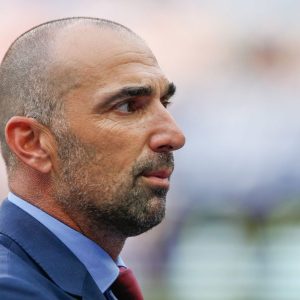Following Paris Saint-Germain’s heavy defeat by Chelsea, 62-year-old Claude Puel spoke frankly about the Parisians’ physical state in the columns of Le Parisien. For the former coach, PSG, already worn out, were logically punished by a much fresher and more lucid London outfit.
Puel “Parisians tired a lot”.
“What did you retain from the match?
The Parisians were really tired. It was one match too many. They had a competition, beyond the season, with difficult opponents, more difficult than Chelsea. They didn’t rotate much, they played non-stop, they had one day less to recover, and that hurts a lot in these conditions, with this heat.
Puel “They had to perform well and hit the nail on the head”.
A fine Chelsea team?
Yes, but they hadn’t been extraordinary in previous games. They knew how to perform and put pressure where it hurts: on Beraldo’s lack of speed. Against Real, who never troubled the Parisian defence, we only saw their strong points: recovery and anticipation.
From the outset, they hurt them with high pressure and lots of movement. As soon as they had the opportunity to recover a high ball, they set up players who were launched into orbit, particularly from this side.”
Against Chelsea, Paris Saint-Germain gave the impression of playing in slow motion, a far cry from the intensity we’ve come to expect from them in major European matches. Claude Puel noted that the Parisians did everything at a slower pace: running, passing and defensive movements. This uncharacteristic slowness gave Chelsea a considerable tactical advantage, allowing them to establish their game in the gaps and press without any real opposition.
Even the usually lively players, such as Vitinha (25) and Hakimi (26), seemed blunted. As a result, Paris never managed to impose their rhythm, dictate the tempo or take control of the match.
It’s a real wake-up call for Luis Enrique. Without collective freshness or cutting-edge play, PSG are becoming ordinary. This general slowdown is not just physical: it also reveals the possible mental exhaustion of a squad that has not been given enough care over the long term.
And in a team with less pressing power, Beraldo often found himself on his own, having to manage depth against a fresher, livelier player. Already not his specialty, it was all the harder here. But that’s the way it always is: defenders seem much weaker when the rest of the team is outmatched.

